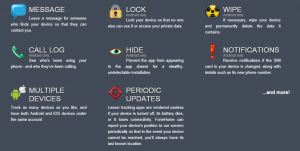In light of the several sexting incidences in the news, like New Trier, I have been thinking about where kids, on their devices, might keep these pictures. Some kids may receive a sext, look at it, and delete it for fear of getting caught with the image in their possession. However, many kids have no desire to part with these precious images. So where in the world do they store them?
If you are a parent that periodically ‘checks’ your child’s phone so you can rest easy that your teen is safe and sound, don’t be so sure that you are seeing everything. There are many very slick apps out there. One such category of these apps are those that hide photos and require a password to get to it.
Obviously, one advantage that these apps provide to kids that have inappropriate photos in their possession is that they can move the photos into a password protected app and get them off the camera roll. However, another huge advantage to this app for the kids is that most parents have no idea that such apps even exist. Therefore, when you simply check your child’s photo roll to ensure he is acting appropriately, you many have no idea that that the vault icon you see is housing potentially life changing photos should your child ever get caught with them. Yes, life changing! Young teenagers, 13 and 14 years old, are being brought up on child pornography charges. Yes, life changing!
In no way am I saying that all our kids are liars and hiding nude pictures in their phones. Most, I hope, are not. However, just take a second to look at this link to Mashable.com so that you are at least familiar with what is out there. Be familiar with what these icons look like so that you recognize it should you see it on your child’s phone. And of course, keep talking to your child, keep educating yourself, and pay attention. Remember, the ultimate goal is to keep our kids safe.

